Predictions & Data for this entry
| Model: abj | climate: MB | migrate: Mo | phylum: |
| COMPLETE = 2.5 | ecozone: MPW, MIE | food: bjPz, jiCi, jiCvf | class: |
| MRE = 0.068 | habitat: 0jMp, jiMdb | gender: D | order: |
| SMSE = 0.017 | embryo: Mb | reprod: O | family: |
Zero-variate data
| Data | Observed | Predicted | (RE) | Unit | Description | Reference |
|---|---|---|---|---|---|---|
| am | 3650 | 3718 | (0.01864) | d | life span | guess |
| Lp | 27.2 | 27.19 | (0.000377) | cm | total length at puberty | ChaKang2010 |
| Li | 40 | 38.15 | (0.04635) | cm | ultimate total length | fishbase |
| Wwb | 0.00022 | 0.0002118 | (0.03707) | g | wet weight at birth | ChaKang2010 |
| Wwi | 1000 | 1013 | (0.01329) | g | ultimate wet weight | ChaKang2010 |
Uni- and bivariate data
| Data | Figure | Independent variable | Dependent variable | (RE) | Reference |
|---|---|---|---|---|---|
| LN | 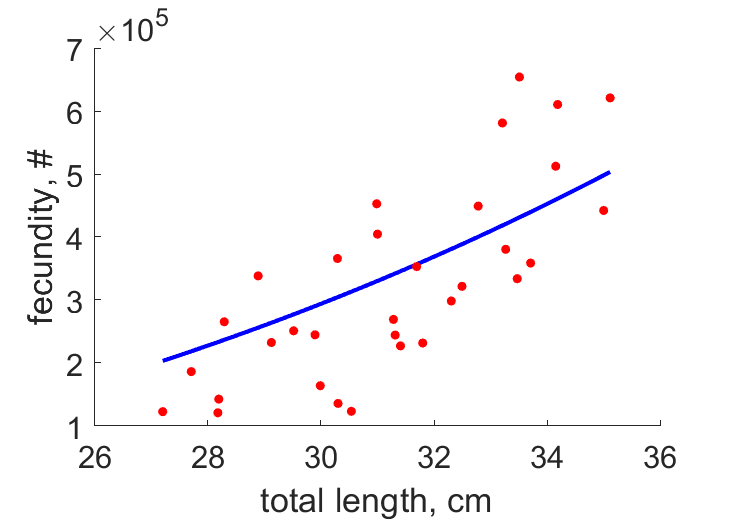 | total length | fecundity | (0.2757) | ChaKang2010 |
| WN | 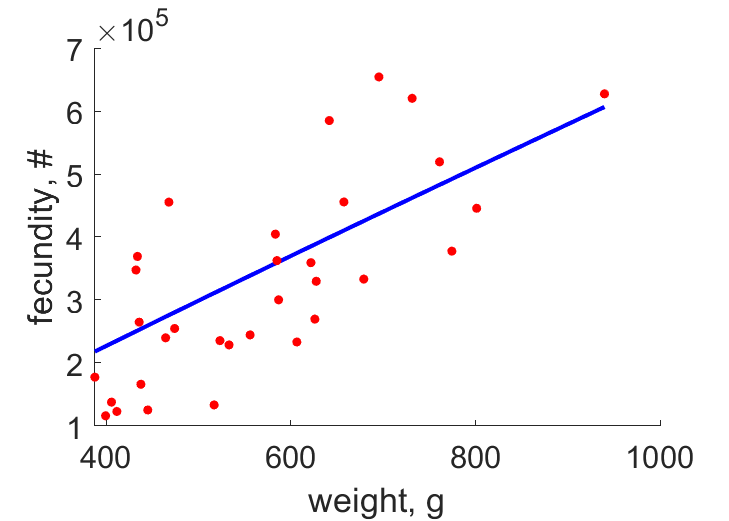 | weight | fecundity | (0.2747) | ChaKang2010 |
| tL1_fm | 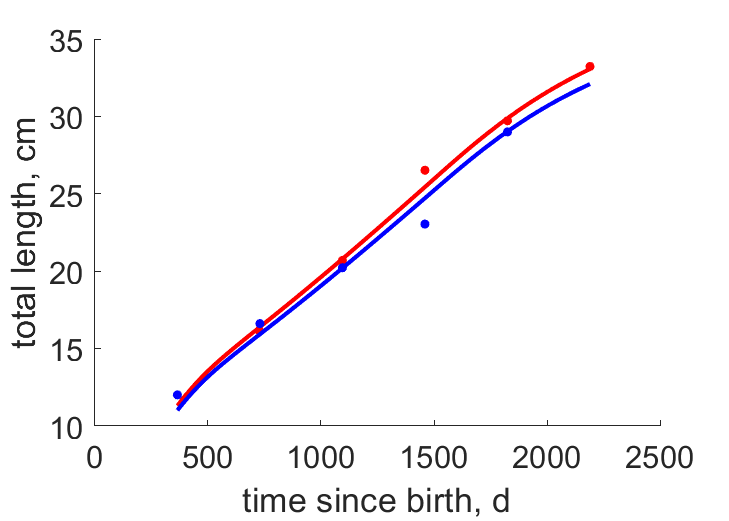 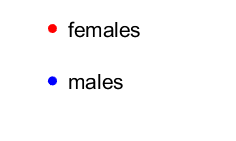 | time since birth | total length | (0.02404) | KhanChoi2012 |
| tL_fm | 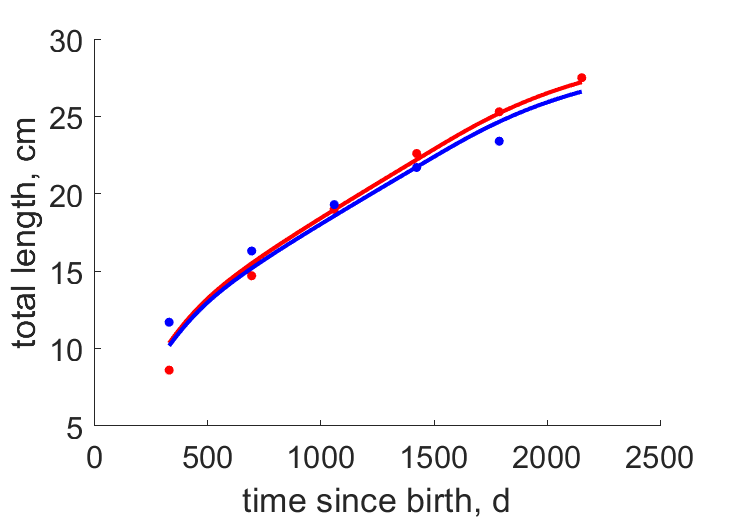 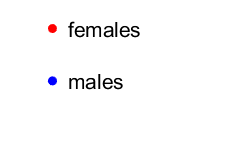 | time since birth | total length | (0.0385) | ChoiChoi2012 |
Pseudo-data at Tref = 20°C
| Data | Generalised animal | Doederleinia berycoides | Unit | Description |
|---|---|---|---|---|
| v | 0.02 | 0.02633 | cm/d | energy conductance |
| p_M | 18 | 163.5 | J/d.cm^3 | vol-spec som maint |
| k_J | 0.002 | 0.002 | 1/d | maturity maint rate coefficient |
| k | 0.3 | 0.06375 | - | maintenance ratio |
| kap | 0.8 | 0.8949 | - | allocation fraction to soma |
| kap_G | 0.8 | 0.8028 | - | growth efficiency |
| kap_R | 0.95 | 0.95 | - | reproduction efficiency |
Discussion
- Males are assumed to differ from females by {p_Am} only
- black innerside of mouth suggests that this species is a mouth brooder, but this is very speculative
Facts
- length-weight: Ww in g = 0.01148*(TL in cm)^2.98 (Ref: fishbase)
- The family lanternbellies has light-emitting organs at the underside (Ref: Wiki)
Bibliography